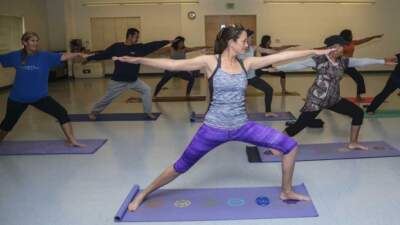A study published on April 3 in JAMA Pediatrics is thought to be the first to recognize naturally occurring lithium in drinking water as a potential environmental risk factor for autism. “Any contaminants in drinking water that could impact the developing human brain warrant serious investigation,” stated the lead author of the study, Beate Ritz, MD, PhD, a professor of neurology at the David Geffen School of Medicine at UCLA and a professor of epidemiology and environmental health at the UCLA Fielding School of Public Health.
Neurology
Neurology is a medical specialty dealing with disorders of the nervous system. Specifically, it deals with the diagnosis and treatment of all categories of disease involving the central, peripheral, and autonomic nervous systems, including their coverings, blood vessels, and all effector tissue, such as muscle. Biomedical scientists and physicians who specialize in neurology are called neurologists, and are trained to investigate, or diagnose and treat, neurological disorders.
Yoga more effective in psychological distress of Parkinson disease
Mindfulness yoga was more effective in relieving the psychological distress of Parkinson disease (PD) than conventional exercise, according to a trial study published in JAMA
Depression, behavior changes may be earliest symptoms of Alzheimer’s disease
Depression, behavior changes may start in Alzheimer’s even before memory changes – Depression and other behavior changes may show up in people who will later develop Alzheimer’s disease even before they start having memory problems, reported by researchers in the medical journal of the American Academy of Neurology.
High good and low bad cholesterol levels healthy for brain
High good and low bad cholesterol levels are healthy for the brain, too – High levels of “good” cholesterol and low levels of “bad” cholesterol are correlated with lower levels of the amyloid plaque deposition in the brain that is a hallmark of Alzheimer’s disease, UC Davis researchers have found.
Concussions may be related to Alzheimer’s disease
Are concussions related to Alzheimer’s disease? – A history of concussion involving at least a momentary loss of consciousness may be related to the buildup of Alzheimer’s-associated plaques in the brain, revealed by researchers in Neurology, the medical journal of the American Academy of Neurology.
Lower blood sugar good for brain
Lower Blood Sugars May Be Good for the Brain – Even for people within the normal range of blood sugar, lowering their blood sugar levels could be a promising strategy for preventing memory problems and cognitive decline as they age.
Parkinson’s Biomarker Test has prognostic and diagnostic value in Parkinson’s Disease
Comprehensive Parkinson’s Biomarker Test Has Prognostic and Diagnostic Value, Penn Medicine Team Reports — First Biomarker Results from Parkinson’s Progression Markers Initiative Detect Differences in Subtypes of Parkinson’s Disease – The first biomarker results reported from the Parkinson’s Progression Markers Initiative (PPMI), showing that a comprehensive test of protein biomarkers in spinal fluid have prognostic and diagnostic value in early stages of Parkinson’s disease.
Regular long term exercise is good for sleep
Exercise is no quick cure for insomnia – Hitting the treadmill today won’t help you sleep tonight; it takes 4 months to kick in – Exercise is a common prescription for insomnia. But spending 45 minutes on the treadmill one day won’t translate into better sleep that night. “If you have insomnia you won’t exercise yourself into sleep right away,” said lead study author Kelly Glazer Baron, a clinical psychologist and director of the behavioral sleep program at Northwestern University Feinberg School of Medicine.
Mentally stimulating activities boost brainpower in old age
Does being a bookworm boost your brainpower in old age? – New research suggests that reading books, writing and participating in brain-stimulating activities at any age may preserve memory. “Our study suggests that exercising your brain by taking part in activities such as these across a person’s lifetime, from childhood through old age, is important for brain health in old age,” said study author Robert S. Wilson, PhD, with Rush University Medical Center in Chicago.
Parkinson’s disease risk higher due to exposure to pesticides
Pesticide exposure linked to Parkinson’s disease — Pesticide Exposure Tied to PD Risk – Exposure to pesticides, weed killers and solvents is likely to be associated with a higher risk for developing Parkinson’s disease, revealed by researchers in the Neurology, the medical journal of the American Academy of Neurology.


